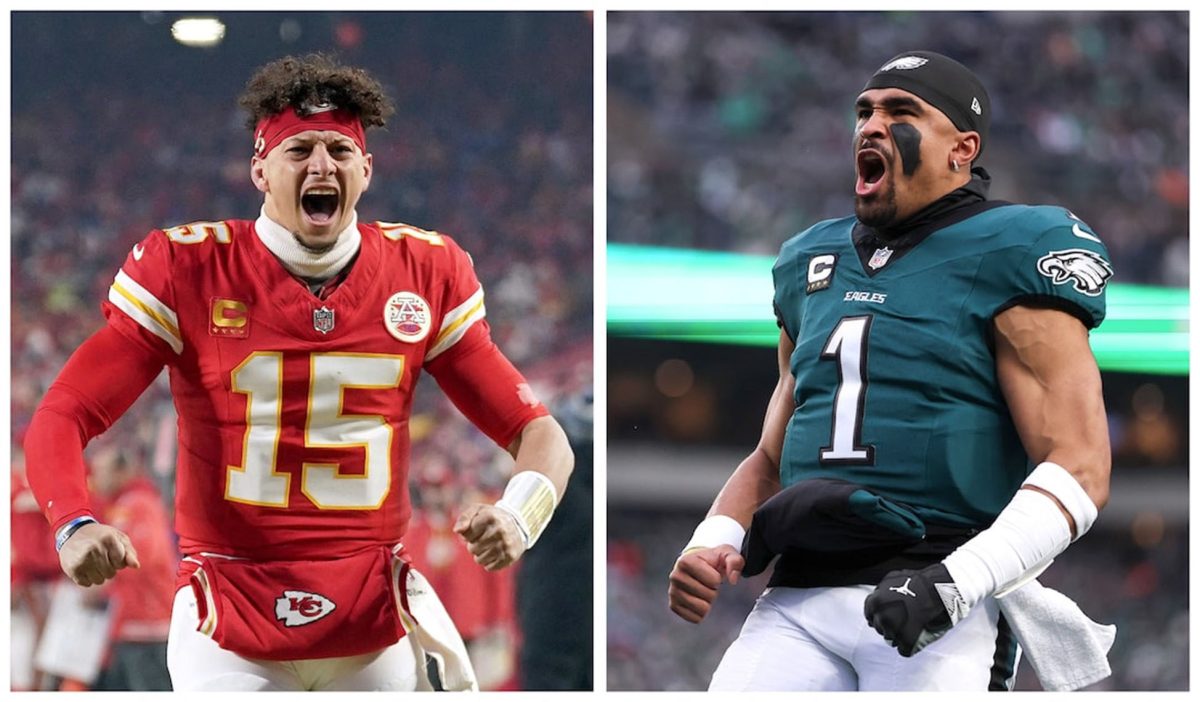NEW ORLEANS, (Reuters) – The Kansas City Chiefs’ two-time MVP Patrick Mahomes and his Philadelphia Eagles counterpart Jalen Hurts made history two years ago, becoming the first Black quarterbacks to face each other in the Super Bowl’s 57-year existence.
Their rematch on Sunday in New Orleans has prompted less fanfare, the latest evidence of the progress Black quarterbacks have made after decades in which they were largely denied a fair shot at the most important job on the gridiron.
“I’ve always said, the less we talk about it, the better it’ll be,” said retired great Doug Williams, who became the first Black quarterback to start – and win – the Super Bowl in 1988 for the then-Washington Redskins.
Williams, who like other Black quarterbacks fought racist assumptions about his abilities, noted that half of the 14 teams that made the playoffs this year started black quarterbacks, the most in NFL history.
The success of Black quarterbacks has become so widespread that Mahomes and Hurts – who spoke at length in 2023 about the historic significance of their matchup – have barely been asked about it in pre-game media appearances.
“Being able to lead a group of men, that was something that many people didn’t think that a person like myself was capable of,” said Hurts. “I think there are certain barriers that you’re still trying to overcome.”
In Week 1 of this season, 15 of the league’s 32 starting quarterbacks, or nearly half, were Black, breaking last year’s record of 14, which in turn exceeded the record of 11, set the year before.
That ratio is close to the overall percentage of NFL players who are Black, which was 53.5% in 2023, according to a report from The Institute For Diversity and Ethics in Sport.
Mahomes and Lamar Jackson, the Raven’s quarterback, have each won two Most Valuable Player awards in the last six years, the first Black quarterbacks to win multiple MVP nods.
“It’s been a hard road since Marlin Briscoe started in 1958 for the Denver Broncos,” said Charles Ross, a University of Mississippi professor and the author of “Outside the Lines: African Americans and the Integration of the National Football League.”
Briscoe, the first starting Black quarterback in the modern era, left the team after a year when he said the coach made it clear Briscoe would not continue in the role. He joined the Dolphins and switched positions, as many other Black quarterbacks were asked to do over the decades.
White quarterbacks were often given “the opportunity to fail,” while Black quarterbacks had far less room for error, Ross said.
Sunday’s matchup will take place amid a national debate over diversity, after President Donald Trump dismantled federal diversity, equity and inclusion (DEI) programs and urged private companies to do the same. Trump will become the first sitting president to attend a Super Bowl on Sunday.
NFL Commissioner Roger Goodell told reporters this week that the league had no intention of scaling back its diversity efforts, despite Trump’s stance.
The league will not stencil the phrase “End Racism” behind one end zone for Sunday’s game, the first time since 2021 that the field will not bear those words, instead replacing it with “Choose Love.”
A league spokesperson said the decision was not related to Trump’s attendance.
“Choose Love” was selected in a nod to several tragedies that have struck the U.S. in recent weeks, including the California wildfires, the plane crash in Washington and the deadly New Year’s Day truck attack in New Orleans, just blocks from the Superdome, the spokesperson, Brian McCarthy, said.
The NFL has implemented a number of measures intended to increase diversity among coaching and front-office ranks. Seven of the league’s 32 head coaches at the start of the season were Black.
Since Williams, seven other Black quarterbacks have played in the title game, including the Titans’ Steve McNair, the Eagles’ Donovan McNabb, the 49ers’ Colin Kaepernick, the Seahawks’ Russell Wilson and the Panthers’ Cam Newton.










